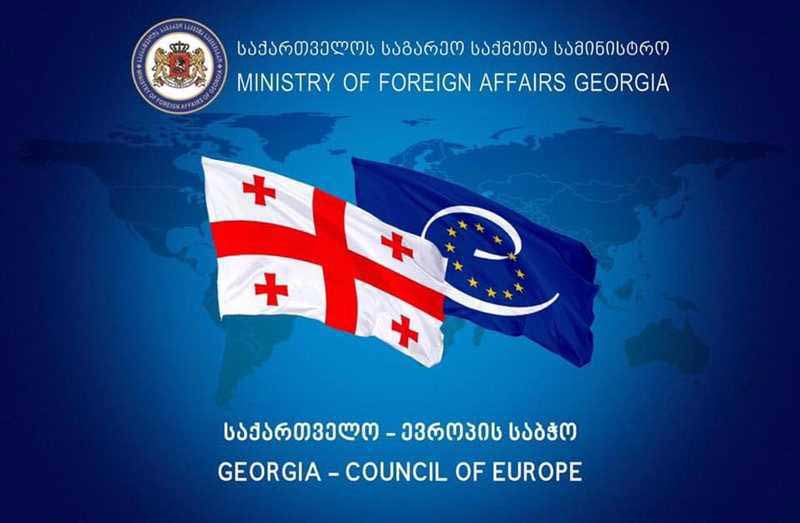
The European Union and its Members States welcome the twenty-third consolidated report on the conflict in Georgia. The EU considers it important to keep this issue high on the political agenda of the Council of Europe.
The EU reiterates its grave concern about the continuing Russian illegal military presence in the Georgian regions of Abkhazia and South Ossetia.
“We highlight the landmark judgement by the Grand Chamber of the European Court of Human Rights delivered on 21 January in the inter-State case Georgia v. Russian Federation. The ruling concludes that after August 12, 2008, the Russian Federation, exercising effective control over South Ossetia and Abkhazia, violated several provisions of the European Convention on Human Rights,” the official statement reads.
The EU reiterates its call upon the Russian Federation to ensure proper follow-up of the ruling, including, as foreseen in the ruling itself, through an adequate and effective investigation not only into the events which had occurred after the cessation of hostilities (following the ceasefire agreement of 12 August 2008) but also into the events which had occurred during the active phase of hostilities (8 to 12 August 2008), and to hold all those responsible for human rights violations accountable.
The EU deplores the continuous deterioration of the human rights and security situation in the Georgian regions of Abkhazia and South Ossetia. The ongoing violations of the freedom of movement, including through the unprecedented, prolonged closure of the Administrative Boundary Line (ABL) “crossing points”, severely affect the security, safety, and well-being of the local population, exacerbated by the COVID-19 pandemic.
The EU calls for the immediate reopening of the “crossing points”, as well as for the release of all those illegally detained along the ABLs without delay, including illegally sentenced Georgian citizen Zaza Gakheladze. In the Abkhaz context, efforts from both sides were made to mitigate COVID-19 related restrictions to crossings. The most recent tragic events on 7 April when four lives were lost during an attempt to cross the Enguri river once more demonstrate the urgent need for increased cooperation.
The EU denounces ongoing discrimination of Georgians on the grounds of ethnicity in both Georgian regions of Abkhazia and South Ossetia.
“We remain concerned about the documentation gap and related restrictions on freedom of movement, residence rights, work and property rights, as well as access to services and education in one’s native language in both entities, further aggravated by the COVID-19 pandemic. We welcome the efforts of the Georgian central government to assist the affected population as much as possible by making available free access to health care, education, and other social benefits for all residents of Abkhazia and South Ossetia.
Tensions in the Chorchana-Tsnelisi area continue to be worrying. We deplore ongoing “borderisation” activities along the ABL – installation of barbed-wire fences, artificial barriers and surveillance equipment, and refurbishing of existing structures – and urge to discontinue them immediately. The EU also condemns the implementation of the so-called “treaties” and deriving agreements,” the EU stressed.
The EU remains deeply concerned by the impunity surrounding grave human rights violations in conflict-affected areas, which continue to undermine human security.
The EU reiterates its call for a proper investigation into the tragic deaths of Georgian nationals Archil Tatunashvili, Giga Otkhozoria and Irakli Kvaratskhelia and for justice to be served.
The EU deeply regrets that no progress could be reported regarding the voluntary, safe, dignified and unhindered return of internally displaced persons and refugees based on internationally recognized principles.
The EU remains highly committed to supporting peacebuilding and conflict resolution in Georgia. The Geneva International Discussions (GID) remain the key international platform in this regard.
“We will continue our engagement in the GID, as well as the Incident Prevention and Response Mechanisms (IPRMs) and through the work of the EU Monitoring Mission (EUMM), which remains – 12 years after the end of the Russia-Georgia war – the only international presence on the ground. The EU will also continue to support humanitarian and human rights protection, development and other co-operation actions in the Georgian regions of Abkhazia and South Ossetia, including the Council of Europe Action Plan for Georgia 2020-2023,” the statement reads.
The EU continues to encourage all initiatives aimed at building bridges across the ABLs and addressing humanitarian challenges, as well as all ongoing and planned confidence-building activities of the Council of Europe.
“We regret once again that monitoring bodies of the Council of Europe and its Human Rights Commissioner have not been granted access to the Georgian regions of Abkhazia and South Ossetia. We reiterate our unwavering support for the independence, sovereignty, and territorial integrity of Georgia within its internationally recognized borders. We once again urge Russia to fulfil its obligations under the EU-mediated ceasefire agreement of 12 August 2008 and its subsequent implementing measures of 8 September 2008,” the EU added.





